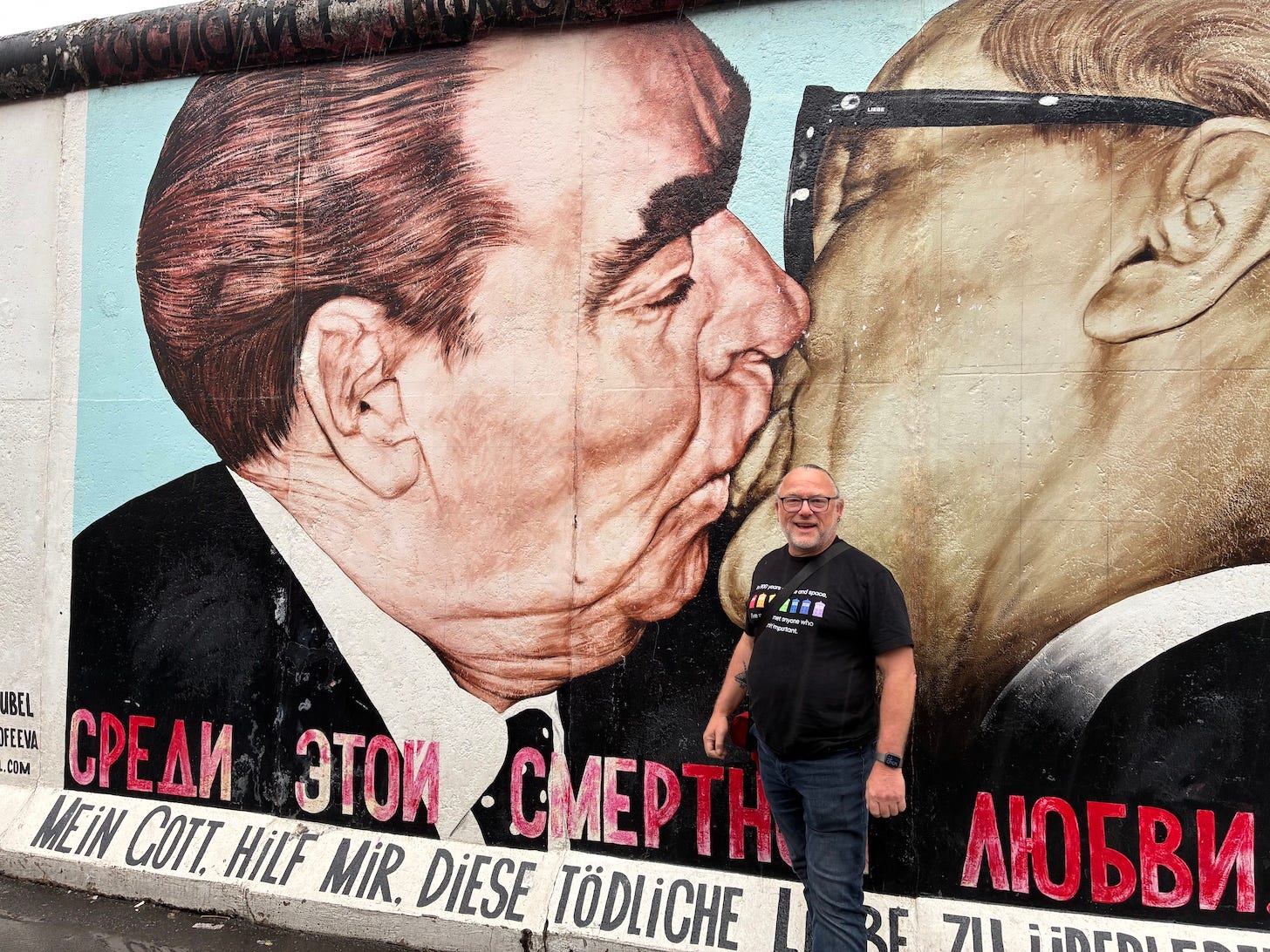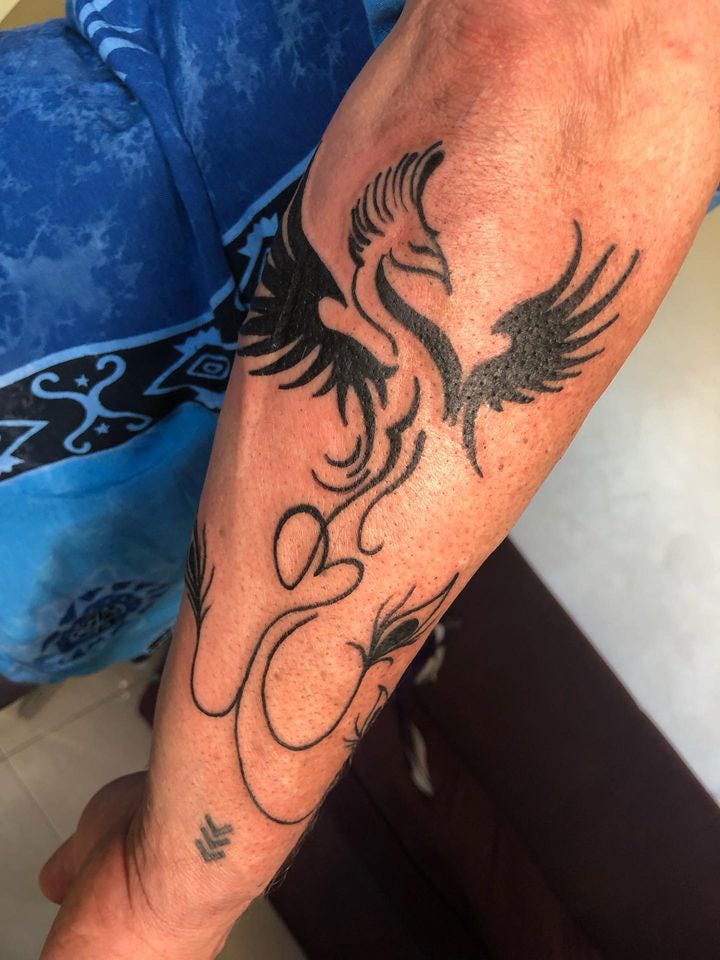Lessons From the Loneliest Times in My Life
At 54, I realised I’d been lonely my whole life. Here’s what five decades of loneliness taught me about connection, vulnerability, and becoming fully human.

It took me until I was 54 to realise I had been lonely my whole life. Not just occasionally isolated or going through a rough patch, but genuinely, consistently lonely for five decades. The realisation arrived not with drama but with the quiet weight of truth finally acknowledged.
Looking back now, I can trace a thread of loneliness running through my life, sometimes imperceptibly, sometimes closer to the surface and less easy to ignore. Reflecting back today, I think I can draw a lesson from each period of loneliness. In this article, I’m picking up on some of those moments that I’ve written about over the last few years. This isn’t about conquering loneliness. It’s about learning to live with it, understand it, and eventually transform it into something that made me more human - and a better human - rather than less.
The Boy Who Lost His Name
In the late 1970s, I was living in Darwin but going to a boarding school in the English Midlands. The school was set in 90 acres of countryside, with HM Prison Onley visible just beyond the motorway. The masters reminded us that’s where we’d end up if we were naughty, a Victorian-era threat that somehow persisted into the 70s.
I lost my first name there. You were only called by your surname, a small erasure that symbolised a larger one. My younger brother and sister were there too, but that didn’t make it less lonely. If anything, seeing them struggle made it worse.
Psychotherapist Joy Schaverian has likened boarding school to a death in the family, arguing it creates what she calls Boarding School Syndrome. She observed that children in these environments grow up without a language for their emotions, creating a split between what they’re told they should experience and what they actually feel.
“People grow up not having the language for their emotions. It causes a split between what you’re told you’re supposed to experience and what you’re actually experiencing. You’re actually very sad when you lose your family, your home, your pets, your nanny - everything you’ve ever had for those eight years of your life is suddenly gone. You’re told that it’s called homesickness and ‘you’ll get over it soon’. Actually, this is a major bereavement.”
I didn’t know it then, but I was learning my first lesson about loneliness: sometimes the people around you don’t make you less alone. Sometimes they make the aloneness more obvious.
The Intercontinental Exile
Before the English boarding school, we’d moved from Surrey to Darwin in 1975. Then back to England for school. Then Darwin again, and to a couple more schools. Then off to Geelong Grammar for my final years. I attended seven schools across two hemispheres throughout my twelve years of schooling.
Other kids had roots. They’d walked to the same school for years, swum at the same beach, and knew which roads they’d ridden their bikes down a decade before. I was always the outsider: the white pommy kid chewed by mosquitoes in Darwin, the antipodean curiosity good at swimming when back in England.
Each move severed friendships before they could properly form. In that pre-Internet era, when boarding school communication came via weekly blue aerogram letters, maintaining connections across continents was impossible. Relationships evaporated with each transition.
We know loneliness often strikes during transitions, times when our usual social structures might be disrupted. German-American theologian Paul Tillich captured this beautifully in “The Eternal Now“ when he noted that:
“Language has created the word ‘loneliness’ to express the pain of being alone. And it has created the word ‘solitude’ to express the glory of being alone.”
When human connections proved unreliable, books remained constant. I’ve always had a love of words, bestowed on me by our parents, for which I am eternally grateful. I could always be found buried in a book, often an escapist adventure; I even had a crack at writing a spy thriller novel as a teenager.
The Ending of Everything Familiar
Fast forward to age 54. My 23-year relationship ended. Not dramatically, but with the slow erosion of connection that happens when two people stop truly seeing each other. Then COVID hit, and Melbourne’s extended lockdowns turned isolation into something you could measure in weeks and months.
I lost my social circle. I gained weight. I let go of my exercise routine. The year or so after separation was the loneliest period of my life. But paradoxically, it was also when I finally learned to address loneliness rather than just endure it.
The First Time Anyone Asked How I Was Feeling
Therapy changed everything. Not because it fixed me, but because for the first time in more than 50 years, someone actually sat me down, asked “how are you feeling?”, listened attentively, and genuinely delved into each of my responses.
My therapist introduced me to an emotion wheel. Each week, I’d print it out and jot down notes about how I was feeling. We’d discuss what triggered each emotion and explore the connections between them. I read Robert Masters’ “Emotional Intimacy”, which profoundly affected how I saw myself and my relationships.
I was learning a new language for my inner life. It was occasionally disorienting, sometimes frustrating, but I came to realise how critical this work was.
Research professor and vulnerability expert Brené Brown argues in “Daring Greatly” that vulnerability is not weakness but rather a measure of courage. When we’re willing to be vulnerable about our loneliness, we invite others into authentic relationships rather than surface-level interactions.
I stopped viewing loneliness as my enemy and started seeing it as my teacher. It taught me radical self-reliance, deep introspection, and the ability to be comfortable in my own company. But more importantly, it taught me to value genuine connection over social performance.
Small Actions, Big Shifts
Recovery wasn’t grand gestures. It was small, repeated choices.
I took back control of my physical health. I got my phoenix tattoo, three tails representing my three children, a visible reminder of new beginnings. I started deliberately setting aside time each week to send messages to friends. WhatsApp became my hub for friendships, leading to “What are you doing next week?” conversations that rebuilt my social world.
I began volunteering. First at the Royal Children’s Hospital emergency department for nearly ten years, then at festivals and events. I’ve helped out at everything from hospitals to kink festivals, connecting with neuro-diverse people with stories of isolation and challenge that taught me how different our paths through loneliness can be.
Cultural critic and feminist author bell hooks wrote in “All About Love: New Visions” that one of the best ways to be self-loving is to give ourselves the love we often dream of receiving from others. I’d spent decades waiting for others to fill that void. Volunteering taught me that belonging to a group transforms our emotional landscape through shared purpose and understanding.
What Loneliness Taught Me About Connection
Here’s a counterintuitive thought: loneliness made me better at connection. When you’ve lived with real loneliness, you develop a detector for authentic relationships versus social theatre. You appreciate the friend who shows up during difficult times over the one who’s only available for celebrations.
I’ve learned that reaching out first is often the bravest thing you can do. That curiosity beats judgment every time. That vulnerability creates bridges rather than exposing weaknesses.
U.S. Surgeon General Dr Vivek Murthy, who has declared loneliness a public health epidemic, observed that people hunger to be known authentically, and far too many feel invisible. That invisibility, he argues, sits at the crux of our loneliness epidemic.
Loneliness taught me to see people.
Of course, my path through loneliness has been shaped by my particular circumstances. For others navigating loneliness whilst also dealing with discrimination, marginalisation, or different forms of social exclusion, the journey looks different. Our individual identities, communities, and life experiences all shape how we experience and emerge from isolation.
The Lessons That Stick
If I could speak to that eleven-year-old boy in the boarding school quad, or the 54-year-old man realising he’d been lonely his whole life, here’s what I’d say:
Loneliness isn’t a character flaw. It’s often the price we pay for being thoughtful, introspective people in a world that values surface-level connection.
“The only way to make sense out of change is to plunge into it, move with it, and join the dance.”
The same applies to loneliness. Fighting it only makes it worse.
Small moments matter more than grand gestures. A text message. A long hug. A genuine question about someone’s day. These build connection brick by brick.
Being comfortable with solitude is a strength, not a weakness. But it’s not the same as being comfortable with isolation. Vulnerability requires courage, but it’s the only path to authentic connection. When you share your struggles rather than hiding them, you permit others to do the same.
Still Learning, Still Growing
I’m not “fixed.” I still have moments when loneliness sits heavy on my chest, and I tend to combat it by hitting up friends and seeing if they’d like to go out or catch up for a drink. I still sometimes struggle to reach out when I need connection. The scars from those school years haven’t totally disappeared.
But I understand now that loneliness and connection aren’t opposites. They’re dance partners. The capacity to be alone strengthens your ability to connect authentically. The courage to connect makes solitude feel chosen rather than imposed.
At 59, I can genuinely say I’ve moved from completely failing “the pub test“ to having people I can call at short notice for dinner or a movie. I’ve built a community through Alone Rangers that connects me with people worldwide who understand that we’re all navigating this space between loneliness and connection.
The loneliest times in my life taught me everything I needed to know about connection. They just took five decades to deliver the lesson.



